UC Irvine CNLM Fellows
The CNLM Fellows represent one of the world’s top “think tanks” in neuroscience. With an average of $20 million each year in federal funding to support high impact research programs, as well as over 10,000 citations per Fellow, they are revolutionizing our understanding of the brain and its disorders, creating innovative neurotechnologies, and improving brain health on a global scale.
Fellow
Departments
| UCI Fellow | Emeritus | In Memoriam | Name | Title | Institution | Department | Keywords | |
|---|---|---|---|---|---|---|---|---|
| UCI-Fellow | Aaron Bornstein, Ph.D. | Assistant Professor, Cognitive Sciences | University of California, Irvine | Cognitive Science | Affect and memory, Computational Cognitive Neuroscience, Episodic memory, fMRI, EEG |  Aaron Bornstein, Ph.D.Assistant Professor, Cognitive Sciences Keywords: Affect and memory, Computational Cognitive Neuroscience, Episodic memory, fMRI, EEG | ||
| Other-Institution | Aaron Mattfeld, Ph.D. | Associate Professor, Department of Psychology | Florida International University | Array | Learning and memory, Development, Neurodevelopment, Disorders, Teaching practices |  Aaron Mattfeld, Ph.D.Associate Professor, Department of Psychology Keywords: Learning and memory, Development, Neurodevelopment, Disorders, Teaching practices | ||
| UCI-Fellow | Albert R. La Spada, M.D., Ph.D. | Professor of Pathology | University of California, Irvine | Neurology, Pathology | Neurodegeneration, neurotherapeutics, neurogenetics, translational neuroscience |  Albert R. La Spada, M.D., Ph.D.Professor of Pathology Keywords: Neurodegeneration, neurotherapeutics, neurogenetics, translational neuroscience | ||
| Other-Institution | Alcino Silva, Ph.D. | Distinguished Professor, Psychology | University of California, Los Angeles | Array |  Alcino Silva, Ph.D.Distinguished Professor, Psychology | |||
| Other-Institution | Alicia Izquierdo, Ph.D. | Professor, Behavioral Neuroscience | University of California, Los Angeles | Array | Chemogenetics, In vivo imaging, Learning under uncertainty, Flexible learning, Reward learning, Value-based decision making |  Alicia Izquierdo, Ph.D.Professor, Behavioral Neuroscience Keywords: Chemogenetics, In vivo imaging, Learning under uncertainty, Flexible learning, Reward learning, Value-based decision making | ||
| UCI-Fellow | Alyson Zalta, Ph.D. | Associate Professor, Psychological Science | University of California, Irvine | Psychological Science | PTSD, Trauma, Transdiagnostic emotional, Risk/resilience, Prevention and Treatment |  Alyson Zalta, Ph.D.Associate Professor, Psychological Science Keywords: PTSD, Trauma, Transdiagnostic emotional, Risk/resilience, Prevention and Treatment | ||
| UCI-Fellow | Amal Alachkar, Ph.D. | Professor of Pharmacy & Pharmaceutical Sciences | University of California, Irvine | Pharmaceutical Sciences | Neural correlates of mental states, Schizophrenia, mechanisms of psychiatric disorders, Depression, Cognition, Cilia |  Amal Alachkar, Ph.D.Professor of Pharmacy & Pharmaceutical Sciences Keywords: Neural correlates of mental states, Schizophrenia, mechanisms of psychiatric disorders, Depression, Cognition, Cilia | ||
| UCI-Fellow | Andrea Tenner, Ph.D. | Distinguished Professor, Molecular Biology and Biochemistry | University of California, Irvine | Neurobiology and Behavior, Molecular Biology and Biochemistry, Pathology | Innate immunity, Inflammation, Cell surface receptors, Alzheimer's disease |  Andrea Tenner, Ph.D.Distinguished Professor, Molecular Biology and Biochemistry Keywords: Innate immunity, Inflammation, Cell surface receptors, Alzheimer's disease | ||
| Other-Institution | Andrew Maurer, Ph.D. | Assistant Professor, Neuroscience | University of Florida | Array | Aging, Entorhinal cortex, Hippocampus, Neurophysiology, Perirhinal cortex |  Andrew Maurer, Ph.D.Assistant Professor, Neuroscience Keywords: Aging, Entorhinal cortex, Hippocampus, Neurophysiology, Perirhinal cortex | ||
| UCI-Fellow | Anna Leshinskaya, Ph.D. | Assistant Professor, Cognitive Sciences | University of California, Irvine | Cognitive Science | Learning Theories, Concept Representation, World Models, Human Behavior, Neural Representation, Semantic Memory, Medial Temporal Lobe, Neural Architecture, Cognition in AI, AI Alignment |  Anna Leshinskaya, Ph.D.Assistant Professor, Cognitive Sciences Keywords: Learning Theories, Concept Representation, World Models, Human Behavior, Neural Representation, Semantic Memory, Medial Temporal Lobe, Neural Architecture, Cognition in AI, AI Alignment | ||
| UCI-Fellow | Barbara Dosher, Ph.D. | Distinguished Professor, Cognitive Sciences | University of California, Irvine | Cognitive Science | Perceptual learning, Human information processing, Visual perception, Memory retrieval |  Barbara Dosher, Ph.D.Distinguished Professor, Cognitive Sciences Keywords: Perceptual learning, Human information processing, Visual perception, Memory retrieval | ||
| Other-Institution | Barbara Knowlton, Ph.D. | Professor, Department of Psychology | University of California, Los Angeles | Array |  Barbara Knowlton, Ph.D.Professor, Department of Psychology | |||
| Other-Institution | Barry Setlow, Ph.D. | Professor, Psychiatry & Human Behavior | University of Florida, College of Medicine | Psychiatry and Human Behavior | Nicotine, Neurobiology, Drug addiction, Diazepam |  Barry Setlow, Ph.D.Professor, Psychiatry & Human Behavior Keywords: Nicotine, Neurobiology, Drug addiction, Diazepam | ||
| Other-Institution | Benno Roozendaal, Ph.D. | Professor, Donders Institute for Brain, Cognition and Behaviour | Radboud University Medical Center | Array | Stress, Amygdala, Hippocampus, Learning and memory, PTSD, Emotional Arousal |  Benno Roozendaal, Ph.D.Professor, Donders Institute for Brain, Cognition and Behaviour Keywords: Stress, Amygdala, Hippocampus, Learning and memory, PTSD, Emotional Arousal | ||
| UCI-Fellow | Bin Nan, Ph.D. | Professor, Statistics | University of California, Irvine | Statistics | High-dimensional statistics, Imaging analysis, Longitudinal analysis, Statistical learning |  Bin Nan, Ph.D.Professor, Statistics Keywords: High-dimensional statistics, Imaging analysis, Longitudinal analysis, Statistical learning | ||
| UCI-Fellow | Brian D. Hitt, M.D., Ph.D. | Assistant Clinical Professor, Neurology | University of California, Irvine | Neurology | Alzheimer's disease, Amyloid Precursor Protein Secretases, Aspartic Acid Endopeptidases, Biosensing Techniques, Cell Adhesion Molecules, Communicable Diseases, Diagnostic Tests, Maternal Nutritional Physiological Phenomena, Pick Disease of the Brain, Proline, Tau Protein, Tauopathies, Frontotemporal Dementia, Progressive Supranuclear Palsy |  Brian D. Hitt, M.D., Ph.D.Assistant Clinical Professor, Neurology Keywords: Alzheimer's disease, Amyloid Precursor Protein Secretases, Aspartic Acid Endopeptidases, Biosensing Techniques, Cell Adhesion Molecules, Communicable Diseases, Diagnostic Tests, Maternal Nutritional Physiological Phenomena, Pick Disease of the Brain, Proline, Tau Protein, Tauopathies, Frontotemporal Dementia, Progressive Supranuclear Palsy | ||
| Other-Institution | Brian Wiltgen, Ph.D. | Associate Professor, Psychology | University of California, Davis | Array |  Brian Wiltgen, Ph.D.Associate Professor, Psychology | |||
| UCI-Fellow | Bruce McNaughton, Ph.D. | Distinguished Professor, Neurobiology and Behavior | University of California, Irvine | Neurobiology and Behavior | Computational models, Hippocampus, Learning and memory, Plasticity, Spatial memory, Neurophysiology |  Bruce McNaughton, Ph.D.Distinguished Professor, Neurobiology and Behavior Keywords: Computational models, Hippocampus, Learning and memory, Plasticity, Spatial memory, Neurophysiology | ||
| UCI-Fellow | Bryce Mander, Ph.D. | Associate Professor, Psychiatry & Human Behavior | University of California, Irvine | Cognitive Science, Pathology, Psychiatry and Human Behavior | Sleep disorders, Cognitive aging, Alzheimer's disease, Memory, Neurodegeneration |  Bryce Mander, Ph.D.Associate Professor, Psychiatry & Human Behavior Keywords: Sleep disorders, Cognitive aging, Alzheimer's disease, Memory, Neurodegeneration | ||
| Other-Institution | Catherine Hartley, Ph.D. | Associate Professor, Psychology | New York University | Array | Learning, Motivated behaviors, Memory, Decision making, Adaptive Behavioral Flexibility, Neuroimaging, psychophysiology, Computational models, Animal learning, Economic Decision Theories, Cognitive & Neural Processes, Behavioral Control Systems, Pavlovian, Goal-Directed, Information Representation, Brain Circuits, Behavioral Capabilities, Brain Dynamics |  Catherine Hartley, Ph.D.Associate Professor, Psychology Keywords: Learning, Motivated behaviors, Memory, Decision making, Adaptive Behavioral Flexibility, Neuroimaging, psychophysiology, Computational models, Animal learning, Economic Decision Theories, Cognitive & Neural Processes, Behavioral Control Systems, Pavlovian, Goal-Directed, Information Representation, Brain Circuits, Behavioral Capabilities, Brain Dynamics | ||
| Other-Institution | Chantal Stern, Ph.D. | Professor and Chair, Psychological and Brain Sciences | Boston University | Array |  Chantal Stern, Ph.D.Professor and Chair, Psychological and Brain Sciences | |||
| Other-Institution | Charan Ranganath, Ph.D. | Professor, Psychology | University of California, Davis | Array | EEG, Eye-tracking, Patient research, Intracranial recording, tDCS, Salivating dogs, fMRI | 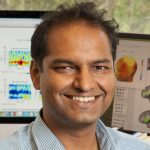 Charan Ranganath, Ph.D.Professor, Psychology Keywords: EEG, Eye-tracking, Patient research, Intracranial recording, tDCS, Salivating dogs, fMRI | ||
| UCI-Fellow | Christie Fowler, Ph.D. | Professor, Neurobiology and Behavior | University of California, Irvine | Neurobiology and Behavior | Drug addiction, Genetics, Dopamine, Motivated behaviors, Nicotine, Aversion |  Christie Fowler, Ph.D.Professor, Neurobiology and Behavior Keywords: Drug addiction, Genetics, Dopamine, Motivated behaviors, Nicotine, Aversion | ||
| Other-Institution | Christina Gremel, Ph.D. | Associate Professor, Psychology | University of California, San Diego | Array | Action Control, Goal-Directed, Orbital Frontal Cortex, Dorsal Striatum, Alcohol, Habit |  Christina Gremel, Ph.D.Associate Professor, Psychology Keywords: Action Control, Goal-Directed, Orbital Frontal Cortex, Dorsal Striatum, Alcohol, Habit | ||
| UCI-Fellow | Christine Gall, Ph.D. | Distinguished Professor and Chair, Anatomy and Neurobiology | University of California, Irvine | Anatomy and Neurobiology, Neurobiology and Behavior | Adult plasticity, Memory encoding, Synaptic modulators, Neurotrophic factors, Intellectual disability, Autism, Adhesion Proteins |  Christine Gall, Ph.D.Distinguished Professor and Chair, Anatomy and Neurobiology Keywords: Adult plasticity, Memory encoding, Synaptic modulators, Neurotrophic factors, Intellectual disability, Autism, Adhesion Proteins | ||
| Other-Institution | Christine N. Smith, Ph.D. | Assistant Adjunct Professor, Psychiatry | University of California, San Diego | Array | Learning, Memory, Mild Cognitive Impairment, Alzheimer's disease, Cognitive neuroscience, Behavioral neuroscience, Patient research, Amnesia, Retrograde memory, Neuroimaging, Eye-tracking |  Christine N. Smith, Ph.D.Assistant Adjunct Professor, Psychiatry Keywords: Learning, Memory, Mild Cognitive Impairment, Alzheimer's disease, Cognitive neuroscience, Behavioral neuroscience, Patient research, Amnesia, Retrograde memory, Neuroimaging, Eye-tracking | ||
| UCI-Fellow | Chuansheng Chen, Ph.D. | Chancellor’s Professor of Psychological Science and Education | University of California, Irvine | Education, Psychological Science | Cross-cultural Psychology, Cognitive neuroscience, Adolescent development, Behavior Genetics |  Chuansheng Chen, Ph.D.Chancellor’s Professor of Psychological Science and Education Keywords: Cross-cultural Psychology, Cognitive neuroscience, Adolescent development, Behavior Genetics | ||
| UCI-Fellow | Claudia Kawas, M.D. | Professor, Neurology | University of California, Irvine | Neurobiology and Behavior, Neurology | Aging, Alzheimer's disease, Epidiemology, Dementia, Longevity, Oldest Old, Geriatrics, Neuropathology |  Claudia Kawas, M.D.Professor, Neurology Keywords: Aging, Alzheimer's disease, Epidiemology, Dementia, Longevity, Oldest Old, Geriatrics, Neuropathology | ||
| UCI-Fellow | Craig Stark, Ph.D. | Professor, Neurobiology and Behavior | University of California, Irvine | Neurobiology and Behavior | Memory, Hippocampus, Neuroimaging, fMRI, Aging, Video games |  Craig Stark, Ph.D.Professor, Neurobiology and Behavior Keywords: Memory, Hippocampus, Neuroimaging, fMRI, Aging, Video games | ||
| UCI-Fellow | Daniela Bota, M.D., Ph.D. | Professor, Neurology | University of California, Irvine | Neurology | Glioblastoma, Brain Cancer, Cancer Stem Cells, Cancer Therapeutics, Chemotherapy-induced Neurological Impairment, Neural Stem Cells |  Daniela Bota, M.D., Ph.D.Professor, Neurology Keywords: Glioblastoma, Brain Cancer, Cancer Stem Cells, Cancer Therapeutics, Chemotherapy-induced Neurological Impairment, Neural Stem Cells | ||
| UCI-Fellow | Daniele Piomelli, Ph.D. | Distinguished Professor, Anatomy & Neurobiology | University of California, Irvine | Anatomy and Neurobiology, Pharmaceutical Sciences | Cellular pharmacology, Neuropharmacology |  Daniele Piomelli, Ph.D.Distinguished Professor, Anatomy & Neurobiology Keywords: Cellular pharmacology, Neuropharmacology | ||
| Other-Institution | David Clewett, Ph.D. | Assistant Professor, Cognitive Psychology | University of California, Los Angeles | Array | Functional brain imaging, fMRI, Structural neuroimaging, Neurophysiology, Pharmacology, Behavioral methods, Emotion, Arousal, Neuromodulators, Episodic memory |  David Clewett, Ph.D.Assistant Professor, Cognitive Psychology Keywords: Functional brain imaging, fMRI, Structural neuroimaging, Neurophysiology, Pharmacology, Behavioral methods, Emotion, Arousal, Neuromodulators, Episodic memory | ||
| UCI-Fellow | David Reinkensmeyer, Ph.D. | Professor, Mechanical and Aerospace Engineering | University of California, Irvine | Anatomy and Neurobiology, Biomedical Engineering, Mechanical and Aerospace Engineering | Neuromuscular control, Stroke rehab, Motor learning, Robotics, Computational models |  David Reinkensmeyer, Ph.D.Professor, Mechanical and Aerospace Engineering Keywords: Neuromuscular control, Stroke rehab, Motor learning, Robotics, Computational models | ||
| Other-Institution | Dean Buonomano, Ph.D. | Professor, Neurobiology and Psychology | University of California, Los Angeles | Array | Learning and memory, Time, Temporal Processing, Neurocomputation, Neural dynamics, Synaptic plasticity, Microcircuits |  Dean Buonomano, Ph.D.Professor, Neurobiology and Psychology Keywords: Learning and memory, Time, Temporal Processing, Neurocomputation, Neural dynamics, Synaptic plasticity, Microcircuits | ||
| Other-Institution | Denise Cai, Ph.D. | Associate Professor, Neuroscience | Icahn School of Medicine at Mount Sinai | Array | Behavior, In vivo imaging, Learning and memory, Cognitive disorders, Hippocampus, Age-Related Deficits, Anxiety-related Disorders, Optogenetics, Chemogenetics, Activity-dependent Tagging, Open-Source, Miniscope |  Denise Cai, Ph.D.Associate Professor, Neuroscience Keywords: Behavior, In vivo imaging, Learning and memory, Cognitive disorders, Hippocampus, Age-Related Deficits, Anxiety-related Disorders, Optogenetics, Chemogenetics, Activity-dependent Tagging, Open-Source, Miniscope | ||
| UCI-Fellow | DeWayne P. Williams, Ph.D. | Assistant Professor, Psychological Science | University of California, Irvine | Psychological Science | Social health psychology, health disparities, psychophysiology, discrimination, stigma, prejudice, stereotyping, stress and health, self-regulation |  DeWayne P. Williams, Ph.D.Assistant Professor, Psychological Science Keywords: Social health psychology, health disparities, psychophysiology, discrimination, stigma, prejudice, stereotyping, stress and health, self-regulation | ||
| UCI-Fellow | Emeritus | Diane O’Dowd, Ph.D. | Professor Emeritus,, Developmental & Cell Biology | University of California, Irvine | Anatomy and Neurobiology, Developmental and Cell Biology | Molecular genetics, Drugs, Induced pluripotent stem cells, Functional plasticity, Neuronal maturation |  Diane O’Dowd, Ph.D.Professor Emeritus,, Developmental & Cell Biology Keywords: Molecular genetics, Drugs, Induced pluripotent stem cells, Functional plasticity, Neuronal maturation | |
| UCI-Fellow | Emeritus | Douglas Granger, Ph.D. | Professor Emeritus, Psychological Science | University of California, Irvine | Psychological Science | Salivary bioscience, Emotion, Circadian rhythms |  Douglas Granger, Ph.D.Professor Emeritus, Psychological Science Keywords: Salivary bioscience, Emotion, Circadian rhythms | |
| Other-Institution | Douglas Nitz, Ph.D. | Professor and Chair, Cognitive Sciences | University of California, San Diego | Array | Spatial Cognition, Episodic memory, Hippocampus, Parietal cortex, Premotor cortex |  Douglas Nitz, Ph.D.Professor and Chair, Cognitive Sciences Keywords: Spatial Cognition, Episodic memory, Hippocampus, Parietal cortex, Premotor cortex | ||
| Other-Institution | Edward Korzus, Ph.D. | Associate Professor, Psychology | University of California, Riverside | Array | Learning and memory, Behavioral neuroscience, Neural Network Dynamics, Neural Circuit Mechanisms of Fear Modulation, Fear Generalization and Discrimination, Drug of Abuse-Induced Neuropsychiatric Vulnerability, Epigenetics |  Edward Korzus, Ph.D.Associate Professor, Psychology Keywords: Learning and memory, Behavioral neuroscience, Neural Network Dynamics, Neural Circuit Mechanisms of Fear Modulation, Fear Generalization and Discrimination, Drug of Abuse-Induced Neuropsychiatric Vulnerability, Epigenetics | ||
| UCI-Fellow | Eitan Schechtman, Ph.D. | Assistant Professor, Neurobiology and Behavior | University of California, Irvine | Neurobiology and Behavior | Sleep, Cognitive neuroscience, Memory |  Eitan Schechtman, Ph.D.Assistant Professor, Neurobiology and Behavior Keywords: Sleep, Cognitive neuroscience, Memory | ||
| UCI-Fellow | Elizabeth Head, Ph.D. | Professor of Pathology | University of California, Irvine | Pathology | Systems Neuroscience, Long-term memory consolidation, Amnesia, Aging, Alzheimer's disease, Hippocampus, Entorhinal cortex, Retrosplenial Cortex, Hippocampal-cortical interactions, Down syndrome |  Elizabeth Head, Ph.D.Professor of Pathology Keywords: Systems Neuroscience, Long-term memory consolidation, Amnesia, Aging, Alzheimer's disease, Hippocampus, Entorhinal cortex, Retrosplenial Cortex, Hippocampal-cortical interactions, Down syndrome | ||
| UCI-Fellow | Elizabeth Loftus, Ph.D. | Distinguished Professor, Psychological Science | University of California, Irvine | Psychological Science | False memories, Eyewitness testimony, Psychology and law, Criminology, Human Memory |  Elizabeth Loftus, Ph.D.Distinguished Professor, Psychological Science Keywords: False memories, Eyewitness testimony, Psychology and law, Criminology, Human Memory | ||
| UCI-Fellow | Elizabeth Martin, Ph.D. | Associate Professor, Psychological Science | University of California, Irvine | Psychological Science | Neural Networks, Learning and memory, Transdiagnostic emotional, Affective control and regulation,, Affect and memory |  Elizabeth Martin, Ph.D.Associate Professor, Psychological Science Keywords: Neural Networks, Learning and memory, Transdiagnostic emotional, Affective control and regulation,, Affect and memory | ||
| Other-Institution | Emily Jacobs, Ph.D. | Associate Professor, Psychological & Brain Sciences | University of California, Santa Barbara | Array | Neuroendocrinology, Menopause, Pregnancy, Precision Neuroimaging, Plasticity, Brain Structure, Brain Function |  Emily Jacobs, Ph.D.Associate Professor, Psychological & Brain Sciences Keywords: Neuroendocrinology, Menopause, Pregnancy, Precision Neuroimaging, Plasticity, Brain Structure, Brain Function | ||
| Other-Institution | Federico Bermudez-Rattoni, Ph.D. | Professor, Department of Cognitive Neurosciences | National Autonomous University of Mexico | Array | Memory, Alzheimer's disease, Neuronal networks, Cognitive neuroscience, Dopaminergic circuits, Catecholaminergic activity |  Federico Bermudez-Rattoni, Ph.D.Professor, Department of Cognitive Neurosciences Keywords: Memory, Alzheimer's disease, Neuronal networks, Cognitive neuroscience, Dopaminergic circuits, Catecholaminergic activity | ||
| UCI-Fellow | Emeritus | Frances Leslie, Ph.D. | Professor Emeritus, Pharmaceutical Sciences | University of California, Irvine | Pharmaceutical Sciences | Neuropharmacology, Drugs and abuse, Adolescence, Prenatal period, Neural development, Drug addiction, Brain Development |  Frances Leslie, Ph.D.Professor Emeritus, Pharmaceutical Sciences Keywords: Neuropharmacology, Drugs and abuse, Adolescence, Prenatal period, Neural development, Drug addiction, Brain Development | |
| Other-Institution | Francesco Battaglia, Ph.D. | Professor, Cognition and Behavior | Radboud University Nijmegen | Array | Neural dynamics, Criticality, Sleep, Memory, Learning |  Francesco Battaglia, Ph.D.Professor, Cognition and Behavior Keywords: Neural dynamics, Criticality, Sleep, Memory, Learning | ||
| UCI-Fellow | Frank LaFerla, Ph.D. | Dean, School of Biological Sciences | University of California, Irvine | Neurobiology and Behavior | Molecular biology, Transgenic mouse models, Learning and memory, Alzheimer's disease |  Frank LaFerla, Ph.D.Dean, School of Biological Sciences Keywords: Molecular biology, Transgenic mouse models, Learning and memory, Alzheimer's disease | ||
| UCI-Fellow | Gary Lynch, Ph.D. | Professor, Psychiatry & Human Behavior | University of California, Irvine | Anatomy and Neurobiology, Psychiatry and Human Behavior | LTP, Computational models, Cognitive disorders, Glutamate receptors, Synaptic plasticity | 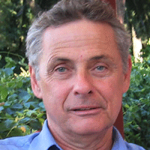 Gary Lynch, Ph.D.Professor, Psychiatry & Human Behavior Keywords: LTP, Computational models, Cognitive disorders, Glutamate receptors, Synaptic plasticity | ||
| UCI-Fellow | Georg Striedter, Ph.D. | Professor, Neurobiology and Behavior | University of California, Irvine | Neurobiology and Behavior | Evolutionary neurobiology, Animal behavior |  Georg Striedter, Ph.D.Professor, Neurobiology and Behavior Keywords: Evolutionary neurobiology, Animal behavior | ||
| UCI-Fellow | Gregory Brewer, Ph.D. | Professor, Biomedical Engineering | University of California, Irvine | Biomedical Engineering | Memory, Alzheimer's disease, Neuronal networks, in vitro physiology |  Gregory Brewer, Ph.D.Professor, Biomedical Engineering Keywords: Memory, Alzheimer's disease, Neuronal networks, in vitro physiology | ||
| Other-Institution | Gregory L. Holmes, M.D. | Professor and Chair, Neurological Sciences | The University of Vermont | Array | Epilepsy, Neuroplasticity, Critical Period, Spatial Cognition, Network Maturation, Temporal Coordination, Dysrhythmias |  Gregory L. Holmes, M.D.Professor and Chair, Neurological Sciences Keywords: Epilepsy, Neuroplasticity, Critical Period, Spatial Cognition, Network Maturation, Temporal Coordination, Dysrhythmias | ||
| UCI-Fellow | Gyorgy Lur, Ph.D. | Associate Professor, Neurobiology and Behavior | University of California, Irvine | Neurobiology and Behavior | Neural signal integration, Chronic and acute stress, Cognitive behavior, Optical techniques |  Gyorgy Lur, Ph.D.Associate Professor, Neurobiology and Behavior Keywords: Neural signal integration, Chronic and acute stress, Cognitive behavior, Optical techniques | ||
| Other-Institution | Halle Dimsdale-Zucker, Ph.D. | Assistant Professor, Psychology | University of California, Riverside | Array | Human Memory, Contextual Influences on Memory, Hippocampus, Aging, Functional brain imaging, EEG, fMRI |  Halle Dimsdale-Zucker, Ph.D.Assistant Professor, Psychology Keywords: Human Memory, Contextual Influences on Memory, Hippocampus, Aging, Functional brain imaging, EEG, fMRI | ||
| Other-Institution | Ilana (Lani) Bennett, Ph.D. | Associate Professor, Psychology | University of California, Riverside | Array | Cognitive neuroscience, Episodic memory, Associative learning, MRI, Aging |  Ilana (Lani) Bennett, Ph.D.Associate Professor, Psychology Keywords: Cognitive neuroscience, Episodic memory, Associative learning, MRI, Aging | ||
| Other-Institution | Ivan Soltesz, Ph.D. | Professor, Neurosurgery | Stanford University | Array | Inhibition, Synaptic plasticity, Cannabinoids, Neuronal microcircuits, In vivo imaging, Electrophysiology, Computational models |  Ivan Soltesz, Ph.D.Professor, Neurosurgery Keywords: Inhibition, Synaptic plasticity, Cannabinoids, Neuronal microcircuits, In vivo imaging, Electrophysiology, Computational models | ||
| UCI-Fellow | J. Zoe Klemfuss, Ph.D. | Associate Professor, Psychological Science | University of California, Irvine | Psychological Science | Narrative development, Children’s autobiographical memory, Sociocontextual influences on children’s narrative, memory, and well-being, Children’s eyewitness abilities |  J. Zoe Klemfuss, Ph.D.Associate Professor, Psychological Science Keywords: Narrative development, Children’s autobiographical memory, Sociocontextual influences on children’s narrative, memory, and well-being, Children’s eyewitness abilities | ||
| UCI-Fellow | Emeritus | James McGaugh, Ph.D. | Distinguished Professor Emeritus, Neurobiology and Behavior | University of California, Irvine | Neurobiology and Behavior | Emotional modulation of memory, Arousal, Memory consolidation, Superior autobiographical memory |  James McGaugh, Ph.D.Distinguished Professor Emeritus, Neurobiology and Behavior Keywords: Emotional modulation of memory, Arousal, Memory consolidation, Superior autobiographical memory | |
| Other-Institution | Janine Kwapis, Ph.D. | Assistant Professor, Biology | The Pennsylvania State University | Array | Neuroscience, Learning and memory, Behavior, Circadian Clock Genes, Age-related Memory Decline, Fear Memory, Molecular Mechanisms, Memory Updating |  Janine Kwapis, Ph.D.Assistant Professor, Biology Keywords: Neuroscience, Learning and memory, Behavior, Circadian Clock Genes, Age-related Memory Decline, Fear Memory, Molecular Mechanisms, Memory Updating | ||
| UCI-Fellow | Javier Diaz Alonso, Ph.D. | Assistant Professor, Anatomy and Neurobiology | University of California, Irvine | Anatomy and Neurobiology | Cellular mechanisms of plasticity, Cannabinoids |  Javier Diaz Alonso, Ph.D.Assistant Professor, Anatomy and Neurobiology Keywords: Cellular mechanisms of plasticity, Cannabinoids | ||
| UCI-Fellow | Jeffrey Krichmar, Ph.D. | Professor, Cognitive Sciences | University of California, Irvine | Cognitive Science | Computational neuroscience, Decision making, Robotics, Spatial navigation, Evolutionary Computation |  Jeffrey Krichmar, Ph.D.Professor, Cognitive Sciences Keywords: Computational neuroscience, Decision making, Robotics, Spatial navigation, Evolutionary Computation | ||
| UCI-Fellow | Jeffrey Rouder, Ph.D. | Professor, Cognitive Science | University of California, Irvine | Cognitive Science | Cognition, Perception, Individual differences, Psychometrics, Bayesian statistics |  Jeffrey Rouder, Ph.D.Professor, Cognitive Science Keywords: Cognition, Perception, Individual differences, Psychometrics, Bayesian statistics | ||
| Other-Institution | Jennifer Bizon, Ph.D. | Professor & Chair, Neuroscience | University of Florida | Array | Cognition, Memory, Decision making, Brain aging, Alzheimer's disease |  Jennifer Bizon, Ph.D.Professor & Chair, Neuroscience Keywords: Cognition, Memory, Decision making, Brain aging, Alzheimer's disease | ||
| Other-Institution | Jessica Bolton, Ph.D. | Assistant Professor, Neuroscience | Georgia State University | Array | Neuroimmunology, Microglia-Neuron Interactions, Early life stress, Early Life Adversity, Neurodevelopment, Neuroendocrinology, Behavioral neuroscience |  Jessica Bolton, Ph.D.Assistant Professor, Neuroscience Keywords: Neuroimmunology, Microglia-Neuron Interactions, Early life stress, Early Life Adversity, Neurodevelopment, Neuroendocrinology, Behavioral neuroscience | ||
| Other-Institution | Jill Leutgeb, Ph.D. | Professor, Biological Sciences | University of California, San Diego | Array |  Jill Leutgeb, Ph.D.Professor, Biological Sciences | |||
| Other-Institution | Joaquin Fuster, M.D., Ph.D. | Distinguished Professor, Psychology | University of California, Los Angeles | Array | Stroke, Brain trauma, Alzheimer's, Schizophrenia | 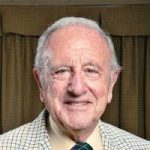 Joaquin Fuster, M.D., Ph.D.Distinguished Professor, Psychology Keywords: Stroke, Brain trauma, Alzheimer's, Schizophrenia | ||
| UCI-Fellow | Emeritus | John Marshall, Ph.D. | Professor Emeritus, Neurobiology and Behavior | University of California, Irvine | Neurobiology and Behavior, Pharmaceutical Sciences | Recovery of function, Basal ganglia motor systems, Brain injury, Neurodegeneration |  John Marshall, Ph.D.Professor Emeritus, Neurobiology and Behavior Keywords: Recovery of function, Basal ganglia motor systems, Brain injury, Neurodegeneration | |
| Other-Institution | John Wixted, Ph.D. | Professor, Psychology | University of California, San Diego | Array | Hippocampal Mechanisms of Declarative Memory, Recognition Memory, Eyewitness Identification |  John Wixted, Ph.D.Professor, Psychology Keywords: Hippocampal Mechanisms of Declarative Memory, Recognition Memory, Eyewitness Identification | ||
| UCI-Fellow | Jorge Busciglio, Ph.D. | Professor, Neurobiology and Behavior | University of California, Irvine | Neurobiology and Behavior | Down's syndrome, Mitochondrial dysfunction, Alzheimer's disease, Neurodegeneration, Axonal Transport, Oxidative stress |  Jorge Busciglio, Ph.D.Professor, Neurobiology and Behavior Keywords: Down's syndrome, Mitochondrial dysfunction, Alzheimer's disease, Neurodegeneration, Axonal Transport, Oxidative stress | ||
| UCI-Fellow | Judith Kroll, Ph.D. | Distinguished Professor, Education | University of California, Irvine | Education | Language processing, Bilingualism, Second language learning, Psycholinguistics, Gender and science, Cognitive neuroscience |  Judith Kroll, Ph.D.Distinguished Professor, Education Keywords: Language processing, Bilingualism, Second language learning, Psycholinguistics, Gender and science, Cognitive neuroscience | ||
| UCI-Fellow | Julian Thayer, Ph.D. | Distinguished Professor, Psychological Science | University of California, Irvine | Psychological Science | health disparities, heart rate variability, Emotion, Stress, Health psychology, psychopathology, |  Julian Thayer, Ph.D. Distinguished Professor, Psychological Science Keywords: health disparities, heart rate variability, Emotion, Stress, Health psychology, psychopathology, | ||
| UCI-Fellow | Julie Lauterborn, Ph.D. | Research Professor, Anatomy and Neurobiology | University of California, Irvine | Anatomy and Neurobiology | Intellectual disability, Down syndrome, Autism, Stress, Learning and memory, Fragile X, Plasticity |  Julie Lauterborn, Ph.D.Research Professor, Anatomy and Neurobiology Keywords: Intellectual disability, Down syndrome, Autism, Stress, Learning and memory, Fragile X, Plasticity | ||
| Other-Institution | Kalina J. Michalska, Ph.D. | Assistant Professor, Psychology | University of California, Riverside | Array | Developmental neuroscience, fMRI, development of empathy, fear learning and memory, conduct disorder, pediatric anxiety |  Kalina J. Michalska, Ph.D.Assistant Professor, Psychology Keywords: Developmental neuroscience, fMRI, development of empathy, fear learning and memory, conduct disorder, pediatric anxiety | ||
| UCI-Fellow | Karina Cramer, Ph.D. | Professor, Neurobiology and Behavior | University of California, Irvine | Neurobiology and Behavior | Neural development, Plasticity, Synaptogenesis, Auditory Brainstem |  Karina Cramer, Ph.D.Professor, Neurobiology and Behavior Keywords: Neural development, Plasticity, Synaptogenesis, Auditory Brainstem | ||
| Other-Institution | Kasia Bieszczad, Ph.D. | Associate Professor, Psychology | Rutgers University | Array | Auditory Cortex, Tonotopic map, Sensory Physiology, Behavioral psychology, Histone Acetylation, Representational plasticity, Epigenetics |  Kasia Bieszczad, Ph.D.Associate Professor, Psychology Keywords: Auditory Cortex, Tonotopic map, Sensory Physiology, Behavioral psychology, Histone Acetylation, Representational plasticity, Epigenetics | ||
| Other-Institution | Kate Wassum, Ph.D. | Professor, Psychology | University of California, Los Angeles | Array | Reward learning, Decision making, Substance Use Disorder, Addiction |  Kate Wassum, Ph.D.Professor, Psychology Keywords: Reward learning, Decision making, Substance Use Disorder, Addiction | ||
| UCI-Fellow | Katharine Simon, Ph.D. | Assistant Professor in Residence, Pediatrics | University of California, Irvine | Pediatrics | Sleep, Learning and memory, Memory Reconsolidation, Development, Pediatric Populations |  Katharine Simon, Ph.D.Assistant Professor in Residence, Pediatrics Keywords: Sleep, Learning and memory, Memory Reconsolidation, Development, Pediatric Populations | ||
| UCI-Fellow | Katherine Thompson-Peer, Ph.D. | Assistant Professor, Developmental & Cell Biology | University of California, Irvine | Developmental and Cell Biology | Development, Brain injury, Neurodegeneration, Dendrite regeneration |  Katherine Thompson-Peer, Ph.D.Assistant Professor, Developmental & Cell Biology Keywords: Development, Brain injury, Neurodegeneration, Dendrite regeneration | ||
| UCI-Fellow | Kei Igarashi, Ph.D. | Associate Professor, Anatomy and Neurobiology | University of California, Irvine | Anatomy and Neurobiology | Memory, Olfaction, Entorhinal cortex, Electrophysiology, Hippocampus, Alzheimer's disease |  Kei Igarashi, Ph.D.Associate Professor, Anatomy and Neurobiology Keywords: Memory, Olfaction, Entorhinal cortex, Electrophysiology, Hippocampus, Alzheimer's disease | ||
| Other-Institution | Kelsey Martin, Ph.D. | Dean, David Geffen School of Medicine | University of California, Los Angeles | Array | Synaptic plasticity, Gene expression, Local translation, Synapse formation, Transcription, Cell signaling and communication, Autism Spectrum Disorder, Neuronal cell biology, Intracellular trafficking |  Kelsey Martin, Ph.D.Dean, David Geffen School of Medicine Keywords: Synaptic plasticity, Gene expression, Local translation, Synapse formation, Transcription, Cell signaling and communication, Autism Spectrum Disorder, Neuronal cell biology, Intracellular trafficking | ||
| UCI-Fellow | Kevin T. Beier, Ph.D. | Assistant Professor, Physiology & Biophysics | University of California, Irvine | Biomedical Engineering, Neurobiology and Behavior, Pharmaceutical Sciences, Physiology and Biophysics | Neural Networks, Molecular neuroscience, Behavior, Viral-genetic |  Kevin T. Beier, Ph.D.Assistant Professor, Physiology & Biophysics Keywords: Neural Networks, Molecular neuroscience, Behavior, Viral-genetic | ||
| UCI-Fellow | Kim Green, Ph.D. | Professor, Neurobiology and Behavior | University of California, Irvine | Neurobiology and Behavior | Alzheimer's disease, Neuroinflammation, Aging, Therapeutics |  Kim Green, Ph.D.Professor, Neurobiology and Behavior Keywords: Alzheimer's disease, Neuroinflammation, Aging, Therapeutics | ||
| UCI-Fellow | Kristina A. Uban, Ph.D. | Assistant Professor, Public Health | University of California, Irvine | Public Health |  Kristina A. Uban, Ph.D.Assistant Professor, Public Health | |||
| Other-Institution | Lara Rangel, Ph.D. | Associate Professor, Cognitive Science | University of California, San Diego | Array | Rhythmic coordination of brain activity, information processing in neural networks, dynamic interactions between neurons, Learning, Memory, neuromodulation |  Lara Rangel, Ph.D.Associate Professor, Cognitive Science Keywords: Rhythmic coordination of brain activity, information processing in neural networks, dynamic interactions between neurons, Learning, Memory, neuromodulation | ||
| Other-Institution | Larry Squire, Ph.D. | Professor, Psychiatry | University of California, San Diego | Array |  Larry Squire, Ph.D.Professor, Psychiatry | |||
| Other-Institution | Laura Colgin, Ph.D. | Professor, Department of Neuroscience | University of Texas, Austin | Array | Learning, Memory, Brain rhythms, Hippocampus, Entorhinal cortex, Schizophrenia, Autism Spectrum Disorder, Alzheimer's disease |  Laura Colgin, Ph.D.Professor, Department of Neuroscience Keywords: Learning, Memory, Brain rhythms, Hippocampus, Entorhinal cortex, Schizophrenia, Autism Spectrum Disorder, Alzheimer's disease | ||
| Other-Institution | Laura DeNardo, Ph.D. | Assistant Professor, Physiology | University of California, Los Angeles | Array | Neurodevelopment, Learning and memory, Neural Circuits, Neural plasticity, Anxiety Disorders, Early life stress |  Laura DeNardo, Ph.D.Assistant Professor, Physiology Keywords: Neurodevelopment, Learning and memory, Neural Circuits, Neural plasticity, Anxiety Disorders, Early life stress | ||
| UCI-Fellow | Laura Ewell, Ph.D. | Assistant Professor, Anatomy and Neurobiology | University of California, Irvine | Anatomy and Neurobiology | Cellular mechanisms of plasticity, Cannabinoids, Network Mechanisms, Single Unit Recording, Oscillations, Pattern Separation, Epilepsy |  Laura Ewell, Ph.D.Assistant Professor, Anatomy and Neurobiology Keywords: Cellular mechanisms of plasticity, Cannabinoids, Network Mechanisms, Single Unit Recording, Oscillations, Pattern Separation, Epilepsy | ||
| UCI-Fellow | Leslie Thompson, Ph.D. | Donald Bren and Chancellor's Professor, Psychiatry & Human Behavior | University of California, Irvine | Neurobiology and Behavior, Psychiatry and Human Behavior | Human genetic disorders, Precision medicine, Huntingtons' disease, Genomics, Therapeutics |  Leslie Thompson, Ph.D.Donald Bren and Chancellor's Professor, Psychiatry & Human Behavior Keywords: Human genetic disorders, Precision medicine, Huntingtons' disease, Genomics, Therapeutics | ||
| UCI-Fellow | Linda Levine, Ph.D. | Professor, Psychological Science | University of California, Irvine | Psychological Science | Cognitive development, Emotional development, Emotions, attention and memory |  Linda Levine, Ph.D.Professor, Psychological Science Keywords: Cognitive development, Emotional development, Emotions, attention and memory | ||
| UCI-Fellow | Lisa Flanagan, Ph.D. | Professor, Neurology | University of California, Irvine | Neurology | Neural stem cell differentiation, Development, Stem cell transplantation, Extracellular Matrix |  Lisa Flanagan, Ph.D.Professor, Neurology Keywords: Neural stem cell differentiation, Development, Stem cell transplantation, Extracellular Matrix | ||
| UCI-Fellow | Liz Chrastil, Ph.D. | Associate Professor, Neurobiology and Behavior | University of California, Irvine | Neurobiology and Behavior | Navigation, Spatial memory, Virtual reality, Episodic memory, fMRI |  Liz Chrastil, Ph.D.Associate Professor, Neurobiology and Behavior Keywords: Navigation, Spatial memory, Virtual reality, Episodic memory, fMRI | ||
| UCI-Fellow | Lulu Y Chen, Ph.D. | Assistant Professor, Anatomy and Neurobiology | University of California, Irvine | Anatomy and Neurobiology | Neurodevelopment, Autism Spectrum Disorder, Schizophrenia, Synapse formation |  Lulu Y Chen, Ph.D.Assistant Professor, Anatomy and Neurobiology Keywords: Neurodevelopment, Autism Spectrum Disorder, Schizophrenia, Synapse formation | ||
| UCI-Fellow | Marcelo Wood, Ph.D. | Professor, Neurobiology and Behavior | University of California, Irvine | Neurobiology and Behavior | Epigenetics, Memory, Drug addiction, Synaptic plasticity, Aging, Mouse models, Physiology |  Marcelo Wood, Ph.D.Professor, Neurobiology and Behavior Keywords: Epigenetics, Memory, Drug addiction, Synaptic plasticity, Aging, Mouse models, Physiology | ||
| Other-Institution | Mariam Aly, Ph.D. | Acting Associate Professor, Psychology | University of California, Berkeley | Array | Cognitive neuroscience, Emotions, attention and memory, Perception, Learning and memory |  Mariam Aly, Ph.D.Acting Associate Professor, Psychology Keywords: Cognitive neuroscience, Emotions, attention and memory, Perception, Learning and memory | ||
| UCI-Fellow | Mark Mapstone, Ph.D. | Professor, Neurology | University of California, Irvine | Neurology | Cognitive aging, Neuropsychology, Biomarkers, Cognitive phenotyping, Amnesia, Metabolomics |  Mark Mapstone, Ph.D.Professor, Neurology Keywords: Cognitive aging, Neuropsychology, Biomarkers, Cognitive phenotyping, Amnesia, Metabolomics | ||
| Other-Institution | Mark Mayford, Ph.D. | Associate Professor, Neuroscience | University of California, San Diego | Array |  Mark Mayford, Ph.D.Associate Professor, Neuroscience | |||
| UCI-Fellow | Mark Steyvers, Ph.D. | Professor, Cognitive Sciences | University of California, Irvine | Cognitive Science, Computer Science, Psychological Science | Wisdom of crowds, Aggregating human judgements, Machine learning and statistics, Computational models |  Mark Steyvers, Ph.D.Professor, Cognitive Sciences Keywords: Wisdom of crowds, Aggregating human judgements, Machine learning and statistics, Computational models | ||
| UCI-Fellow | Mark Warschauer, Ph.D. | Professor, Education and Informatics | University of California, Irvine | Informatics, Education | Digital Learning, Language and Literacy, STEM Education, Generative AI in Education |  Mark Warschauer, Ph.D.Professor, Education and Informatics Keywords: Digital Learning, Language and Literacy, STEM Education, Generative AI in Education | ||
| Other-Institution | Marta Sabariego, Ph.D. | Assistant Professor, Neuroscience and Behavior | Mount Holyoke College | Array | Appetitive memory, Reward, Hippocampus, Electrophysiology, Behavior |  Marta Sabariego, Ph.D.Assistant Professor, Neuroscience and Behavior Keywords: Appetitive memory, Reward, Hippocampus, Electrophysiology, Behavior | ||
| UCI-Fellow | Mathew Blurton-Jones, Ph.D. | Professor, Neurobiology and Behavior | University of California, Irvine | Neurobiology and Behavior | Stem cells, Parkinson disease, Alzheimer's, Neurogenesis |  Mathew Blurton-Jones, Ph.D.Professor, Neurobiology and Behavior Keywords: Stem cells, Parkinson disease, Alzheimer's, Neurogenesis | ||
| UCI-Fellow | Megan Peters, Ph.D. | Associate Professor, Cognitive Science | University of California, Irvine | Cognitive Science | Perception, metacognition, consciousness, fMRI, Computational models |  Megan Peters, Ph.D.Associate Professor, Cognitive Science Keywords: Perception, metacognition, consciousness, fMRI, Computational models | ||
| Other-Institution | Melissa Sharpe, Ph.D. | Psychology | The University of Sydney | Array | Dopamine, Lateral Hypothalamus, Reinforcement Learning, Behavioral neuroscience, Optogenetics |  Melissa Sharpe, Ph.D.Psychology Keywords: Dopamine, Lateral Hypothalamus, Reinforcement Learning, Behavioral neuroscience, Optogenetics | ||
| Other-Institution | Michael Fanselow, Ph.D. | Distinguished Professor, Behavioral Neuroscience | University of California, Los Angeles | Array | Fear, Learning, PTSD, Stress, Anxiety |  Michael Fanselow, Ph.D.Distinguished Professor, Behavioral Neuroscience Keywords: Fear, Learning, PTSD, Stress, Anxiety | ||
| Other-Institution | Michael Hasselmo, Ph.D. | Professor, Psychological and Brain Sciences | Boston University | Array | Acetylcholine, Episodic memory, Theta rhythm, Entorhinal cortex, Hippocampus, Retrosplenial Cortex, Presynaptic inhibition, Persistent spiking | 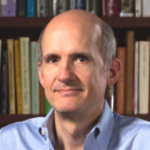 Michael Hasselmo, Ph.D.Professor, Psychological and Brain Sciences Keywords: Acetylcholine, Episodic memory, Theta rhythm, Entorhinal cortex, Hippocampus, Retrosplenial Cortex, Presynaptic inhibition, Persistent spiking | ||
| UCI-Fellow | Michael Lee, Ph.D. | Professor, Cognitive Sciences | University of California, Irvine | Cognitive Science | Cognitive modeling, Memory models, Bayesian statistics, Decision making, Individual differences |  Michael Lee, Ph.D.Professor, Cognitive Sciences Keywords: Cognitive modeling, Memory models, Bayesian statistics, Decision making, Individual differences | ||
| UCI-Fellow | Emeritus | Michael Leon, Ph.D. | Professor Emeritus, Neurobiology and Behavior | University of California, Irvine | Neurobiology and Behavior | Alzheimer's disease, Olfactory processing, Aging, Autism |  Michael Leon, Ph.D.Professor Emeritus, Neurobiology and Behavior Keywords: Alzheimer's disease, Olfactory processing, Aging, Autism | |
| UCI-Fellow | Michael Yassa, Ph.D. | Professor, Neurobiology and Behavior | University of California, Irvine | Neurobiology and Behavior, Neurology, Psychiatry and Human Behavior, Psychological Science | Learning, Memory, Aging, Alzheimer's disease, Depression, Cross-species neuroimaging, Clinical trials |  Michael Yassa, Ph.D.Professor, Neurobiology and Behavior Keywords: Learning, Memory, Aging, Alzheimer's disease, Depression, Cross-species neuroimaging, Clinical trials | ||
| Other-Institution | Michel Baudry, Ph.D. | Professor, Biomedical Science | Western University of Health Sciences | Array | Synaptic plasticity, Learning and memory, Calpain, Neurodegeneration, Traumatic brain injury, Epilepsy, Alzheimer's disease, Angelman Syndrome |  Michel Baudry, Ph.D.Professor, Biomedical Science Keywords: Synaptic plasticity, Learning and memory, Calpain, Neurodegeneration, Traumatic brain injury, Epilepsy, Alzheimer's disease, Angelman Syndrome | ||
| Other-Institution | Michele T. Diaz, Ph.D. | Professor, Psychology, Linguistics, & Neuroscience | The Pennsylvania State University | Array | Language processing, Age Differences, Behavioral Assessments, Neural Mechanisms, Language Comprehension, Language Production, Speech Rates, Object Naming, Tip-of-the-Tongue States, Neuropsychological Assessments, Cognitive Functions, Functional MRI, Resting-State MRI, Structural MRI, Age-Related Deficits |  Michele T. Diaz, Ph.D.Professor, Psychology, Linguistics, & Neuroscience Keywords: Language processing, Age Differences, Behavioral Assessments, Neural Mechanisms, Language Comprehension, Language Production, Speech Rates, Object Naming, Tip-of-the-Tongue States, Neuropsychological Assessments, Cognitive Functions, Functional MRI, Resting-State MRI, Structural MRI, Age-Related Deficits | ||
| UCI-Fellow | Mimi Liljeholm, Ph.D. | Associate Professor, Cognitive Sciences | University of California, Irvine | Cognitive Science | Reinforcement Learning, Structure Learning, Inductive Reasoning, Decision making, Addiction, Social Transmission |  Mimi Liljeholm, Ph.D.Associate Professor, Cognitive Sciences Keywords: Reinforcement Learning, Structure Learning, Inductive Reasoning, Decision making, Addiction, Social Transmission | ||
| UCI-Fellow | Momoko Watanabe, Ph.D. | Assistant Professor, Anatomy and Neurobiology | University of California, Irvine | Anatomy and Neurobiology | Autism Spectrum Disorder, Neurodevelopment, Stem cells, Brain organoids, Tissue engineering, Neurological disorders |  Momoko Watanabe, Ph.D.Assistant Professor, Anatomy and Neurobiology Keywords: Autism Spectrum Disorder, Neurodevelopment, Stem cells, Brain organoids, Tissue engineering, Neurological disorders | ||
| UCI-Fellow | Munjal Acharya, Ph.D. | Associate Professor, Anatomy and Neurobiology | University of California, Irvine | Anatomy and Neurobiology | Neuroinflammation, Regenerative Medicine, Neuro-Oncology, Neurodegeneration, Epilepsy, Stem cells |  Munjal Acharya, Ph.D.Associate Professor, Anatomy and Neurobiology Keywords: Neuroinflammation, Regenerative Medicine, Neuro-Oncology, Neurodegeneration, Epilepsy, Stem cells | ||
| Other-Institution | Nina Rouhani, Ph.D. | Assistant Professor, Psychology | University of Southern California | Array | Reinforcement Learning, Memory, Emotion, Computational neuroscience, Cognitive Science, Psychology, Computational Psychiatry |  Nina Rouhani, Ph.D.Assistant Professor, Psychology Keywords: Reinforcement Learning, Memory, Emotion, Computational neuroscience, Cognitive Science, Psychology, Computational Psychiatry | ||
| UCI-Fellow | Norbert Fortin, Ph.D. | Associate Professor, Neurobiology and Behavior | University of California, Irvine | Neurobiology and Behavior | Hippocampus, Prefrontal cortex, Electrophysiology, Behavioral neuroscience, Sequence Memory |  Norbert Fortin, Ph.D.Associate Professor, Neurobiology and Behavior Keywords: Hippocampus, Prefrontal cortex, Electrophysiology, Behavioral neuroscience, Sequence Memory | ||
| UCI-Fellow | Memoriam | Norman Weinberger | Array | |||||
| UCI-Fellow | Oswald Steward, Ph.D. | Distinguished Professor, Anatomy & Neurobiology | University of California, Irvine | Anatomy and Neurobiology | Regeneration, Sprouting, Excitotoxicity, Cellular mechanisms of plasticity, Spinal Cord Injury, Epilepsy |  Oswald Steward, Ph.D.Distinguished Professor, Anatomy & Neurobiology Keywords: Regeneration, Sprouting, Excitotoxicity, Cellular mechanisms of plasticity, Spinal Cord Injury, Epilepsy | ||
| Other-Institution | Paul Gold, Ph.D. | Professor, Department of Biology | College of Arts and Sciences at Syracuse University | Array | Aging, Learning and memory, Plasticity, Psychiatric conditions, Neurological conditions, Cell signaling and communication |  Paul Gold, Ph.D.Professor, Department of Biology Keywords: Aging, Learning and memory, Plasticity, Psychiatric conditions, Neurological conditions, Cell signaling and communication | ||
| UCI-Fellow | Pierre Baldi, Ph.D. | Distinguished Professor, Information and Computer Sciences | University of California, Irvine | Computer Science | Deep Learning, Neural Networks, Reinforcement Learning, Theoretical foundations and applications |  Pierre Baldi, Ph.D.Distinguished Professor, Information and Computer Sciences Keywords: Deep Learning, Neural Networks, Reinforcement Learning, Theoretical foundations and applications | ||
| Other-Institution | Regina Lapate, Ph.D. | Assistant Professor, Psychological & Brain Sciences | University of California, Santa Barbara | Array | Emotion Regulation, Cognitive Control, Temporal Memory, Prefrontal cortex, Amygdala, fMRI, TMS |  Regina Lapate, Ph.D.Assistant Professor, Psychological & Brain Sciences Keywords: Emotion Regulation, Cognitive Control, Temporal Memory, Prefrontal cortex, Amygdala, fMRI, TMS | ||
| Other-Institution | Richard Morris, Ph.D. | Professor, Neuroscience | University of Edinburgh | Array | Synapses, Circuits, Behavior, Learning |  Richard Morris, Ph.D.Professor, Neuroscience Keywords: Synapses, Circuits, Behavior, Learning | ||
| UCI-Fellow | Memoriam | Richard Thompson | Array | |||||
| Other-Institution | Robert Clark, Ph.D. | Professor, Department of Psychiatry | University of California, San Diego | Array | Hippocampus, Memory, Recognition Memory, Classical conditioning, Science history, Spatial memory |  Robert Clark, Ph.D.Professor, Department of Psychiatry Keywords: Hippocampus, Memory, Recognition Memory, Classical conditioning, Science history, Spatial memory | ||
| UCI-Fellow | Robert Hunt, Ph.D. | Associate Professor, Anatomy and Neurobiology | University of California, Irvine | Anatomy and Neurobiology | Electrophisiology, Hippocampal plasticity, Stem cells, Neural Networks, Neural Circuits, Synapses, Epilepsy, Autism |  Robert Hunt, Ph.D.Associate Professor, Anatomy and Neurobiology Keywords: Electrophisiology, Hippocampal plasticity, Stem cells, Neural Networks, Neural Circuits, Synapses, Epilepsy, Autism | ||
| Other-Institution | Robert James Sutherland, Ph.D. | Professor & Chair in the Department of Neuroscience | University of Lethbridge | Array | Learning and memory, Amnesia, Systems Neuroscience, Alzheimer's disease, Hippocampus, Long-term memory consolidation |  Robert James Sutherland, Ph.D.Professor & Chair in the Department of Neuroscience Keywords: Learning and memory, Amnesia, Systems Neuroscience, Alzheimer's disease, Hippocampus, Long-term memory consolidation | ||
| UCI-Fellow | Ron Frostig, Ph.D. | Professor, Neurobiology and Behavior | University of California, Irvine | Neurobiology and Behavior | Sensory neocortex, Cortical plasticity, Optical imaging | 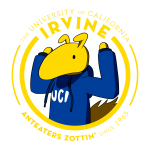 Ron Frostig, Ph.D.Professor, Neurobiology and Behavior Keywords: Sensory neocortex, Cortical plasticity, Optical imaging | ||
| UCI-Fellow | Roy Fox, Ph.D. | Assistant Professor, Computer Science | University of California, Irvine | Computer Science | Control learning, Reinforcement Learning, Algorithmic Game Theory, Information Theory, Robotics |  Roy Fox, Ph.D.Assistant Professor, Computer Science Keywords: Control learning, Reinforcement Learning, Algorithmic Game Theory, Information Theory, Robotics | ||
| UCI-Fellow | Emeritus | Ruth Benca, M.D., Ph.D. | Professor Emeritus | University of California, Irvine | Array | Sleep and memory, Obstructive sleep apnea, High-density EEG, Depression, Mental Health |  Ruth Benca, M.D., Ph.D.Professor Emeritus Keywords: Sleep and memory, Obstructive sleep apnea, High-density EEG, Depression, Mental Health | |
| Other-Institution | Sara Burke, Ph.D. | Professor, Neuroscience | University of Florida | Array | Aging, Entorhinal cortex, Hippocampus, Memory, Neurophysiology, Perirhinal cortex |  Sara Burke, Ph.D.Professor, Neuroscience Keywords: Aging, Entorhinal cortex, Hippocampus, Memory, Neurophysiology, Perirhinal cortex | ||
| UCI-Fellow | Sara Mednick, Ph.D. | Professor, Cognitive Science | University of California, Irvine | Cognitive Science | Sleep, Pharmacology, Psychophysics, Aging and disease, EEG, fMRI, Memory consolidation |  Sara Mednick, Ph.D.Professor, Cognitive Science Keywords: Sleep, Pharmacology, Psychophysics, Aging and disease, EEG, fMRI, Memory consolidation | ||
| Other-Institution | Serena Dudek, Ph.D. | Senior Investigator | National Institute of Environmental Health Sciences | Array | Critical Periods, Synaptic plasticity, Development, Transcriptional Regulation, Steroid Hormones, Stress, Hippocampal Area CA2, Mineralocorticoid Receptors, NR3C2 |  Serena Dudek, Ph.D.Senior Investigator Keywords: Critical Periods, Synaptic plasticity, Development, Transcriptional Regulation, Steroid Hormones, Stress, Hippocampal Area CA2, Mineralocorticoid Receptors, NR3C2 | ||
| UCI-Fellow | Shahrdad Lotfipour, Ph.D. | Associate Professor, Emergency Medicine and Pharmaceutical Sciences | University of California, Irvine | Emergency Medicine, Pharmaceutical Sciences, Pathology | Learning and memory, Development, Limbic brain, Drug-seeking, Gut-Brain axis, Maternal drug exposure, Reward, Brain Imaging | 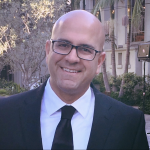 Shahrdad Lotfipour, Ph.D.Associate Professor, Emergency Medicine and Pharmaceutical Sciences Keywords: Learning and memory, Development, Limbic brain, Drug-seeking, Gut-Brain axis, Maternal drug exposure, Reward, Brain Imaging | ||
| Other-Institution | Stefan Leutgeb, Ph.D. | Professor, Department of Neurobiology | University of California, San Diego | Array |  Stefan Leutgeb, Ph.D.Professor, Department of Neurobiology | |||
| Other-Institution | Stephan Anagnostaras, Ph.D. | Associate Professor, Psychology | University of California, San Diego | Array |  Stephan Anagnostaras, Ph.D.Associate Professor, Psychology | |||
| Other-Institution | Stephanie Leal, Ph.D. | Assistant Professor, Integrative Biology & Physiology | University of California, Los Angeles | Array | Cognitive Tasks, Neuroimaging, Active learning, Cognitive Impairment, Mood Disorders, Memory Disorders, Restoration of Function, Neurobiological Mechanisms, Episodic memory, Aging, Disease States |  Stephanie Leal, Ph.D.Assistant Professor, Integrative Biology & Physiology Keywords: Cognitive Tasks, Neuroimaging, Active learning, Cognitive Impairment, Mood Disorders, Memory Disorders, Restoration of Function, Neurobiological Mechanisms, Episodic memory, Aging, Disease States | ||
| UCI-Fellow | Stephen Mahler, Ph.D. | Professor, Neurobiology and Behavior | University of California, Irvine | Neurobiology and Behavior | Reward, Motivation, Executive function, Cannabinoids, Addiction, Conditioning, Adolescence, Development, Early life stress, Dopamine, Ventral pallidum, Opioid, Adversity, Vaping, Neural Circuits, Orexin, Fear, Chemogenetics, Rats |  Stephen Mahler, Ph.D.Professor, Neurobiology and Behavior Keywords: Reward, Motivation, Executive function, Cannabinoids, Addiction, Conditioning, Adolescence, Development, Early life stress, Dopamine, Ventral pallidum, Opioid, Adversity, Vaping, Neural Circuits, Orexin, Fear, Chemogenetics, Rats | ||
| Other-Institution | Stephen Maren, Ph.D. | Professor, Department of Psychology | University of Illinois | Array | Amygdala, Hippocampus, Emotional learning and memory, Prefrontal cortex, Fear conditioning, Extinction, Context-specific behavior |  Stephen Maren, Ph.D.Professor, Department of Psychology Keywords: Amygdala, Hippocampus, Emotional learning and memory, Prefrontal cortex, Fear conditioning, Extinction, Context-specific behavior | ||
| UCI-Fellow | Sunil P. Gandhi, Ph.D. | Associate Professor, Neurobiology and Behavior | University of California, Irvine | Neurobiology and Behavior | Critical period plasticity, Interneurons, Neuronal transplantation, Brain clearing, Visual System, Connectomics, Action Control |  Sunil P. Gandhi, Ph.D.Associate Professor, Neurobiology and Behavior Keywords: Critical period plasticity, Interneurons, Neuronal transplantation, Brain clearing, Visual System, Connectomics, Action Control | ||
| UCI-Fellow | Susan Charles, Ph.D. | Professor, Psychological Science | University of California, Irvine | Psychological Science | Emotional processing, Subjective experience, Health and emotion |  Susan Charles, Ph.D.Professor, Psychological Science Keywords: Emotional processing, Subjective experience, Health and emotion | ||
| UCI-Fellow | Susana Cohen-Cory, Ph.D. | Professor, Neurobiology and Behavior | University of California, Irvine | Neurobiology and Behavior | Synapse formation, In vivo imaging |  Susana Cohen-Cory, Ph.D.Professor, Neurobiology and Behavior Keywords: Synapse formation, In vivo imaging | ||
| Other-Institution | Susanne Jaeggi, Ph.D. | Professor, Education | Northeastern University | Array | Memory, Plasticity, Executive control, Cognitive training |  Susanne Jaeggi, Ph.D.Professor, Education Keywords: Memory, Plasticity, Executive control, Cognitive training | ||
| UCI-Fellow | Sven Bernecker, Ph.D. | Professor, Philosophy | University of California, Irvine | Philosophy | Epistemology and memory, Mnemonic confabulation, Epistemic benefits of memory's imperfections |  Sven Bernecker, Ph.D.Professor, Philosophy Keywords: Epistemology and memory, Mnemonic confabulation, Epistemic benefits of memory's imperfections | ||
| UCI-Fellow | Tallie Z. Baram, M.D., Ph.D. | Distinguished Professor, Pediatrics, Anatomy and Neurobiology, Neurology, Physiology and Biophysics | University of California, Irvine | Anatomy and Neurobiology, Neurology, Pediatrics, Physiology and Biophysics | Stress-memory interaction, Sex-differences, Early life stress, brain circuit maturation, Reward, PTSD, Anhedonia, CRH |  Tallie Z. Baram, M.D., Ph.D.Distinguished Professor, Pediatrics, Anatomy and Neurobiology, Neurology, Physiology and Biophysics Keywords: Stress-memory interaction, Sex-differences, Early life stress, brain circuit maturation, Reward, PTSD, Anhedonia, CRH | ||
| Other-Institution | Ted Abel, Ph.D. | Professor, Molecular Physiology | University of Iowa | Array | Mammalian hippocampus, Long-term memory storage, Psychiatric disorders, Neurodevelopment disorders, Neuronal circuits, Sleep, Memory, Behavioral epigenomics |  Ted Abel, Ph.D.Professor, Molecular Physiology Keywords: Mammalian hippocampus, Long-term memory storage, Psychiatric disorders, Neurodevelopment disorders, Neuronal circuits, Sleep, Memory, Behavioral epigenomics | ||
| UCI-Fellow | Theo G.M. van Erp, Ph.D. | Associate Professor, Psychiatry & Human Behavior | University of California, Irvine | Psychiatry and Human Behavior |  Theo G.M. van Erp, Ph.D.Associate Professor, Psychiatry & Human Behavior | |||
| Other-Institution | Timothy Allen, Ph.D. | Assistant Professor, Department of Psychology | Florida International University | Array | Cognition, Mental Health, Hippocampus, Prefrontal cortex, Animal models, Learning and memory, Behavior |  Timothy Allen, Ph.D.Assistant Professor, Department of Psychology Keywords: Cognition, Mental Health, Hippocampus, Prefrontal cortex, Animal models, Learning and memory, Behavior | ||
| Other-Institution | Timothy Bredy, Ph.D. | Professor | Queensland Brain Institute | Array | Memory, Fear, Extinction, PTSD, Phobia, Epigenetics, Non-coding RNA, RNA modification, Epitranscriptomics, DNA structure, Activity-dependent gene expression |  Timothy Bredy, Ph.D.Professor Keywords: Memory, Fear, Extinction, PTSD, Phobia, Epigenetics, Non-coding RNA, RNA modification, Epitranscriptomics, DNA structure, Activity-dependent gene expression | ||
| Other-Institution | Wendy Suzuki, Ph.D. | Professor, Neural Science | University of New York | Array | Memory, Hippocampus, Physical activity, Brain plasticity, Anxiety, Alzheimer's disease |  Wendy Suzuki, Ph.D.Professor, Neural Science Keywords: Memory, Hippocampus, Physical activity, Brain plasticity, Anxiety, Alzheimer's disease | ||
| UCI-Fellow | Xiangmin Xu, Ph.D. | Professor, Anatomy & Neurobiology | University of California, Irvine | Anatomy and Neurobiology, Biomedical Engineering, Computer Science | Neural Circuits, Cell-type specific, Electrophysiology, Imaging, Optical stimulation |  Xiangmin Xu, Ph.D.Professor, Anatomy & Neurobiology Keywords: Neural Circuits, Cell-type specific, Electrophysiology, Imaging, Optical stimulation |


